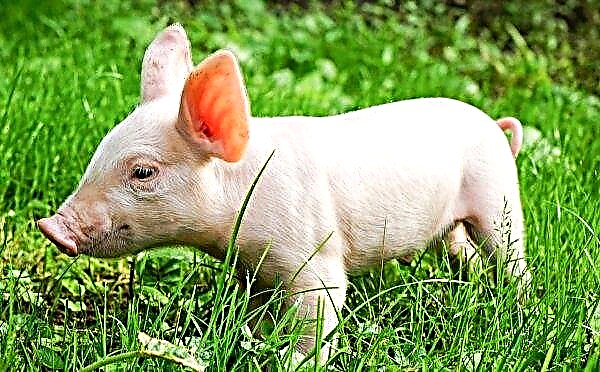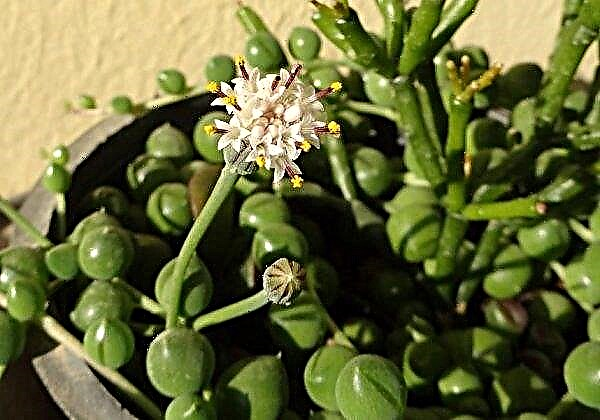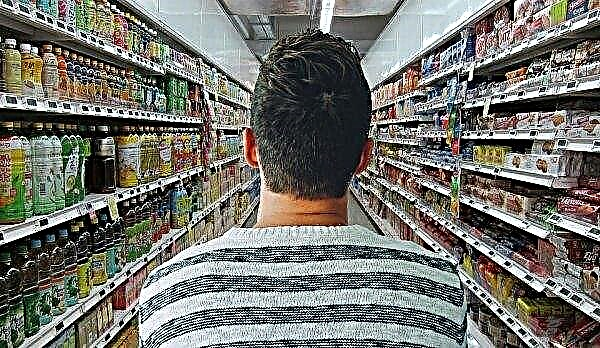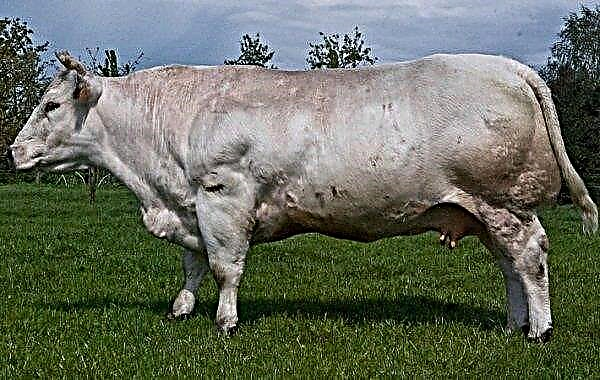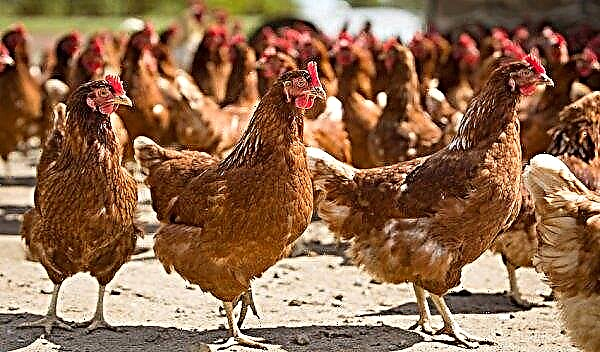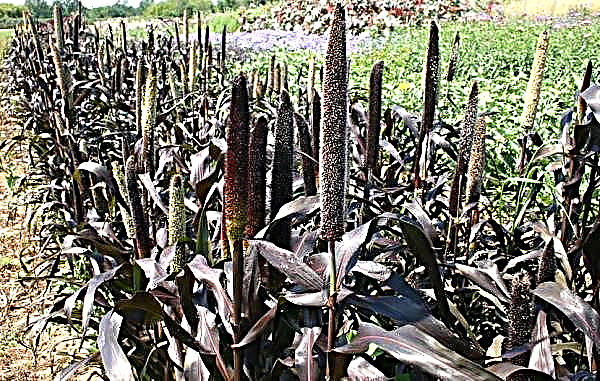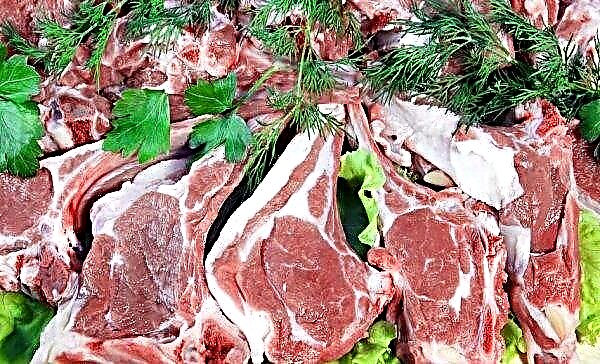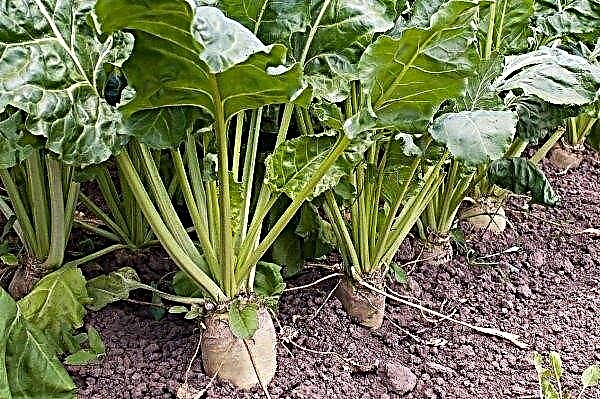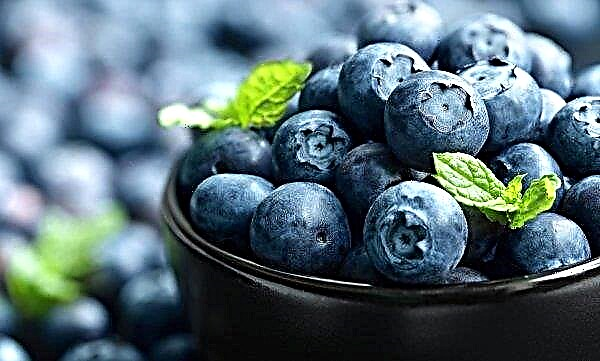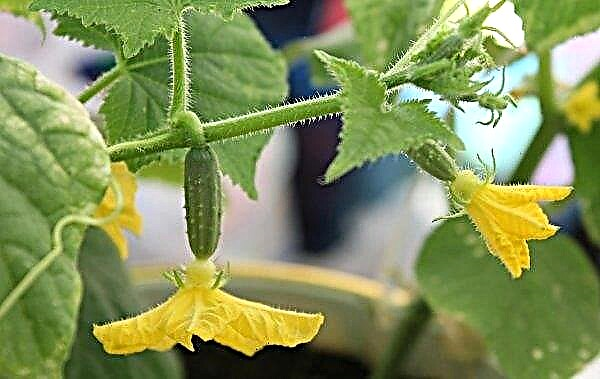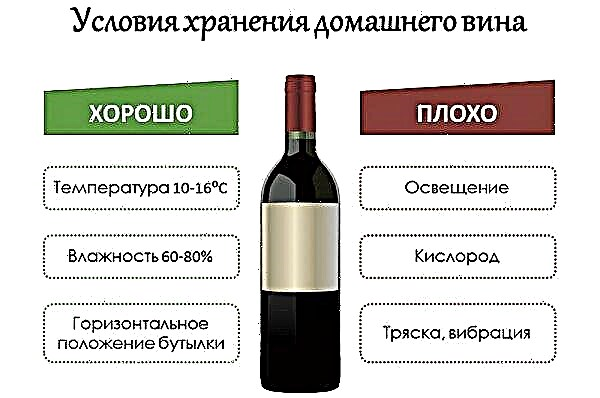All poultry farmers want the chickens to please them with stable, high and long egg production. However, it is not always possible to achieve this only with good conditions of detention and the provision of high-quality feed. In some cases, the introduction of vitamin supplements is required. An article on what vitamins to give to hens in the winter, so that they rush well, and how to give them correctly.
Why do chickens give vitamins
Vitamins are biologically active substances, without which no physiological process takes place in the feathered organism. The lack of an element or vitamin deficiency will certainly lead to health problems in poultry (for example, metabolic disorders, a drop in egg production, frequent illnesses, and a general deterioration in well-being). An excess of vitamins can also be a problem, so the additional introduction of vitamin supplements should be competent and strictly according to the recommendations of specialists.
An excess of vitamins can also be a problem, so the additional introduction of vitamin supplements should be competent and strictly according to the recommendations of specialists.
Did you know? The world's largest egg was able to lay a chicken named Henrietta. It weighed 163 g and had a diameter of 23 cm, length - 11.5 cm.
What are needed
For active life, chickens need all known vitamins, except ascorbic acid. Each of them has a specific effect on the body and performs a specific function, namely:
| Function | Deficit Health Problems | Where is contained |
| Vitamin A (Retinol) | ||
| Participates in metabolic processes |
| In small amounts in plant foods |
| Vitamin B1 (Thiamine) | ||
| Responsible for the activity of the nervous system, takes part in carbohydrate metabolism |
| Flour from various herbs, bran, animal feed |
| Vitamin B2 (Riboflavin) | ||
| Participates in the nervous system |
| Yeast, grain, dairy products |
| Vitamin B6 (Pyridoxine) | ||
| Participates in digestion processes, breeding, endocrine glands |
| Animal products |
| Vitamin B12 (Cyanocobalamin) | ||
| Takes part in reproductive function |
| Fishmeal, animal products |
| Vitamin D (Calciferol) | ||
| Regulation of phosphorus and calcium metabolism, bone formation |
| Fish oil, yeast, hay flour |
| Vitamin E (tocopherol) | ||
| Participates in metabolic processes and the process of reproduction |
| Green fodder, corn, legumes and hay from them, sprouted grain |
| Vitamin K (phylloquinone) | ||
| Essential for stable circulatory system function |
| Green feed, hay, silage, soybean seeds |
How to give
If the birds cannot provide all the necessary vitamins with food, then it is necessary to purchase ready-made vitamin supplements in the pharmacy network.
Premixes will help increase the egg laying of chickens.
The following premixes have been developed for laying hens, which include only natural substances, without preservatives and hormones:
- Rex vital;
- "Ryabushka";
- "Chicken pock";
- Zdravur.
Important! The dosage of premixes will need to be calculated based on age, breed, method of maintenance, basic diet, season.
 The vitamin mixture can be prepared independently. To do this, you need to grind the following ingredients into powder:
The vitamin mixture can be prepared independently. To do this, you need to grind the following ingredients into powder:- dry nettle;
- eggshell;
- lime;
- sand.
The mixture must be placed in a separate feeder so that hens can have constant access to it and eat as much as they need.
You can also mix 3-5 g of yeast into the feed (this will saturate it with B vitamins). The same elements are found in garlic. It is dried and triturated, and then added to the feed. In addition to saturating with valuable elements, garlic powder strengthens the immune system, is a prophylactic against worms and respiratory diseases. There is another way to feed the yeast:
There is another way to feed the yeast:
- Dissolve 10-20 g of yeast in 1.5 l of heated water.
- Pour 1 kg of grain flour mixture.
- Mix well.
- Let it brew for 8 hours at a temperature of + 18-20 degrees.
- Add vitamin and mineral complex.
- Feed chickens daily for 15-20 g.
Video: Feeding
For chickens from the first days of life, it is necessary to introduce fish oil, which is sold in the pharmacy network and is recommended for children. It is poured into food three times a day. For adults, the dosage is 1 g per individual or 1 tablespoon per 3 kg of feed. For the purpose of prevention, fish oil is given once a week.
Important! Fish oil is added to the feed of egg chickens and adult laying hens. Representatives of meat breeds can be fed up to 3 weeks. In the future, this is not recommended, since the taste of meat may be impaired.
The basics of healthy chicken eating
Whether chickens need to be supplemented with vitamins will depend on how well the basic diet is prepared and how well it is balanced. It is important to follow the recommendations for feeding poultry.
What can I give
The following ingredients must be in the diet of chickens:
- grass (fresh and dried);
- corn;
- sprouted grain;
- nettle (dried and fresh);
- egg shell;
- meat and bone meal and fish meal;
- shell rock;
- salt;
- a piece of chalk;
- vegetables (carrots, potatoes, beets, cabbage);
- milk products.
 The daily diet of laying hens can be compiled in approximately this way:
The daily diet of laying hens can be compiled in approximately this way:
- boiled potatoes - 0.4-1 kg;
- whole grain cereal - 0.7 kg;
- combined silo - 0.4-0.5 kg;
- non-fat milk (fresh or sour) - 0.2-0.25 kg;
- crushed grain or tart - 0.25 kg;
- carrots - 0.2 kg;
- bran - 0.1 kg;
- minced meat and fish - 0.1 kg;
- meal or meal - 0.1 kg;
- shredded hay - 0.1 kg;
- chalk - 0.06 kg;
- beets - 0.05 kg;
- bone meal - 0.02 kg;
- salt - 5 g.
Did you know? Twice in the world, laying hens brought eggs with 9 yolks. The first time this happened in 1971 in the United States. And the second time such an anomaly was registered in the Soviet Union in 1977.
For broilers, the ration is 1 time and 1 individual can be made following the following recommendations:
| Feed | Amount in the summer period, g | The amount in the winter, g |
| Cereal grain | 50 | 60 |
| Bean Grain | 5 | 6 |
| Mealy | 25 | 20 |
| Oilcake, meal, yeast | 8 | 7 |
| Animal origin | 6 | 6 |
| Tubers, root crops | 60 | 20 |
| Flour from grass, needles, hay | - | 10 |
| Minerals | 8 | 8 |
What not
It is strictly forbidden to feed poultry with such products:
- salt and salty foods in large quantities;
- immature vegetables;
- green potatoes;
- onions;
- beans in dry or undercooked form;
- dry rice
- seeds of apples;
- raw eggs.
 Thus, vitamins must always be present in the menu of chickens and adult hens in order for their body to function properly. The diet should be so that vitamins are present year-round. Unless it is possible to provide this need with food, it is necessary to introduce vitamin supplements in premixes.
Thus, vitamins must always be present in the menu of chickens and adult hens in order for their body to function properly. The diet should be so that vitamins are present year-round. Unless it is possible to provide this need with food, it is necessary to introduce vitamin supplements in premixes.

